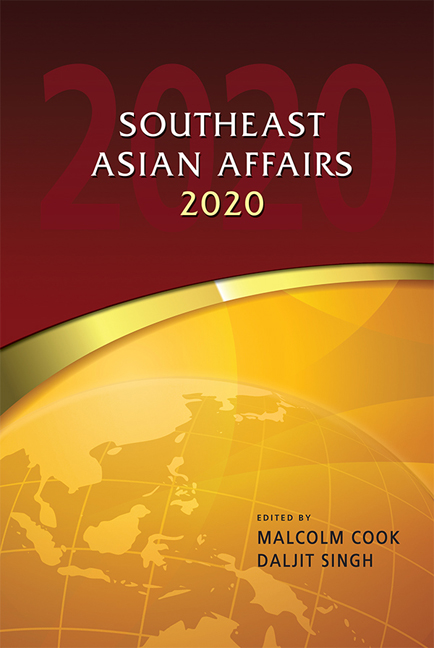The 2020 Myanmar General Election: Another Turning Point?
Published online by Cambridge University Press: 24 November 2020
Summary
According to the Constitution of Myanmar, a general election is to be held every five years in order to elect parliamentarians to the two legislative chambers, the lower house (Pyithu Hluttaw, or house of representative) and the upper house (Amyotha Hluttaw, or house of nationalities). Twenty-five per cent of the seats in both houses are reserved for military-appointed representatives. After parliamentary elections, the lower and upper houses will sit together in the Pyidaungsu Hluttaw (Assembly of the Union) to serve as an electoral college for the presidential election.
The coming general election in 2020 will be an important milestone for Myanmar. The elections in 2010 brought about the “Myanmar Spring” under President Thein Sein, while the 2015 elections witnessed Aung San Suu Kyi and her National League for Democracy (NLD) coming to power. The 2015 general election marked the very first peaceful transfer of power from one elected government to another since the country gained independence from the British in 1948. The year 2015 was also the first time Aung San Suu Kyi and her party were able to form the government since winning the election in 1990.
In the three years since assuming power, the NLD government has introduced reforms of the economy, banking and finance; implemented a crackdown on corruption; and initiated the 21st Century Panglong Conference, a new peace process aimed at settling the country's various ethnic insurgencies. However, these efforts have been overshadowed by an economic slowdown, the Rohingya crisis and a lack of progress in the peace process. In particular, the failure of the reforms to translate into tangible benefits at the grass-roots level has led many people to feel that the NLD government has under-delivered on expectations.
The upcoming general election in 2020 will be the first electoral test for the NLD government. It will also be a judgement of Aung San Suu Kyi's leadership and legacy. Meanwhile, the opposition parties in Myanmar have sought to capitalize on voter dissatisfaction with the NLD's performance in government. The Union Solidarity and Development Party (USDP), which lost power in the 2015 elections, has been reorganizing itself and replacing its old generation of party leaders, including former President Thein Sein.
- Type
- Chapter
- Information
- Southeast Asian Affairs 2020 , pp. 255 - 272Publisher: ISEAS–Yusof Ishak InstitutePrint publication year: 2020



